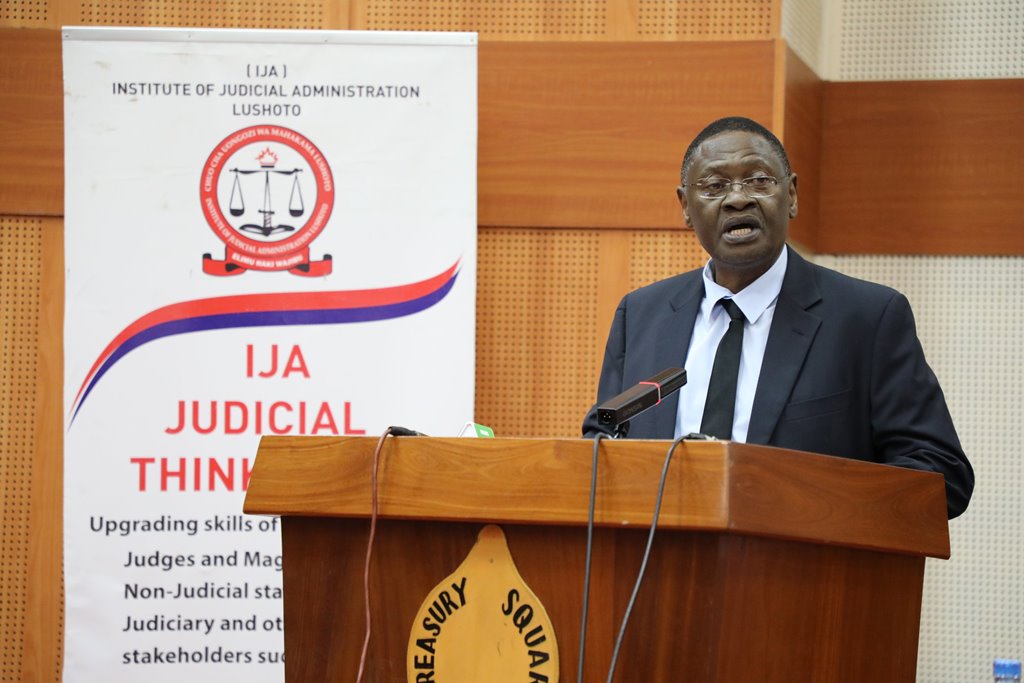AfricaPress-Tanzania: THE Chief Justice (CJ), Prof. Ibrahim Juma, has directed judicial officers countrywide to observe ethics and accountability, warning that the independence of the Judiciary, which is among three pillars of the State, will not be complete without such commitments.
Prof. Juma made the remarks, while opening a meeting of Judges-in-charge and some Ethics Committee members to raise awareness on Administrative Guidelines for the Ethics Committees of Judicial Officers in Dodoma Capital, recently.
According to a statement issued by the Directorate of Information and Communication of the Judiciary of Tanzania, Prof. Juma pointed out that judiciary independence not anchored on accountability and ethics is in distress.
“The Administrative Guidelines for the Ethics Committees of Judicial Officers is an example of steps taken by the Judicial Service Commission to protect the independence of the Judiciary, while at the same time, strengthening accountability and ethics,” said the Chief Justice.
Section 33 (1) of the Judicial Administration Act No. 4 of 2011 has given the Judicial Service Commission powers to delegate its functions to committees created under the Act or to be created by the commission.
Prof. Juma explained that the Administrative Guidelines for the Ethics Committees of Judicial Officers would assist the commission in administering delegated committees and also enable the Committees to have a uniform process in reaching decisions.
He was referring to the committees established by Act No. 4 of 2011 such as the Judges’ Ethics Committee, the Judicial Officers Ethics Committee, the Regional Judicial Ethics Committee and the District Judicial Ethics Committee.
Stressing, the Chief Justice pointed out that Regional and District Ethics Committees have the freedom to exercise inter-dependence between the three pillars of the State in order to bring success in justice delivery.
He added that in dependency and cooperation of each pillar of the State should also have powers to support, defend and protect every sector without interfering with their individual duties.
Prof. Juma stressed on the importance of such guidelines to be read and understood in order to help Judges-in-Charge, Magistrates, Judicial Officers, committee chairmen and members of the Ethics Committees know how to implement their actions.
According to the Chief Justice, such guidelines would also educate Regional and District Commissioners to be aware of the judiciary’s responsibilities and ensure that justice delivery functions are not interfered with.
However, he appealed to the Regional and District Commissioners that while receiving complaints from the public, they should also educate and advise them on how to submit their complaints in accordance with the rules and regulations.
Prof. Juma said the guidelines also provide ways how the Judge, Registrar or Magistrate, while fulfilling their obligations in accordance with the Constitution, law and the principles of oaths should not to be interfered with.







